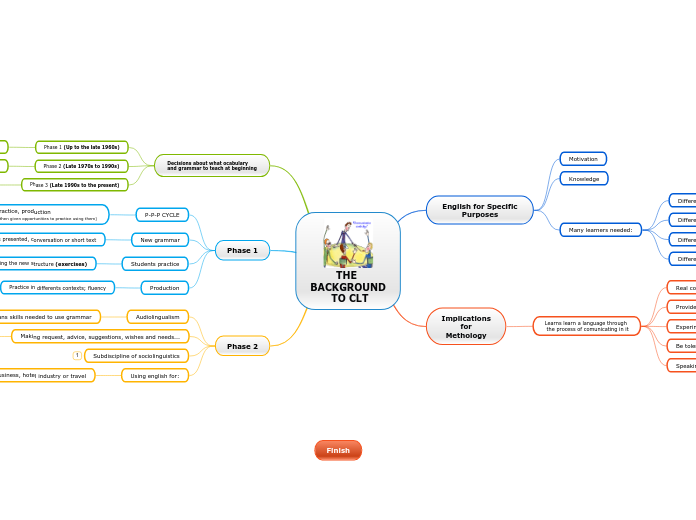
THE
BACKGROUND
TO CLT
English for Specific
Purposes
Motivation
Knowledge
Many learners needed:
Differences
vocabulary choise
Differences
In grammar
Differences
kinds of texts commonly occuring
Differences
particular skills
Implications
for
Methology
Learns learn a language through
the process of comunicating in it
Real communication
Focus- Language learning
Provide opportunities
Accuracy and fluency
Experiment and try out what they know
Be tolerant of learners' errors
Bulding up his or her communicative competence
Speaking, writing, listening, reading
Real world
Decisions about what ocabulary
and grammar to teach at beginning
Phase 1 (Up to the late 1960s)
Tradicional approaches
Phase 2 (Late 1970s to 1990s)
Classic communicative language teaching
Phase 3 (Late 1990s to the present)
Current communicative language teaching
Phase 1
P-P-P CYCLE
Presentation, practice, production
(Grammar rules and then given opportunities to practice using them)
New grammar
Structure is presented, conversation or short text
Students practice
Using the new structure (exercises)
Production
Practice in differents contexts; fluency
Phase 2
Audiolingualism
Knowledge ans skills needed to use grammar
Making request, advice, suggestions, wishes and needs...
Grammatical content
needed
Subdiscipline of sociolinguistics
Using english for:
Business, hotel industry or travel
